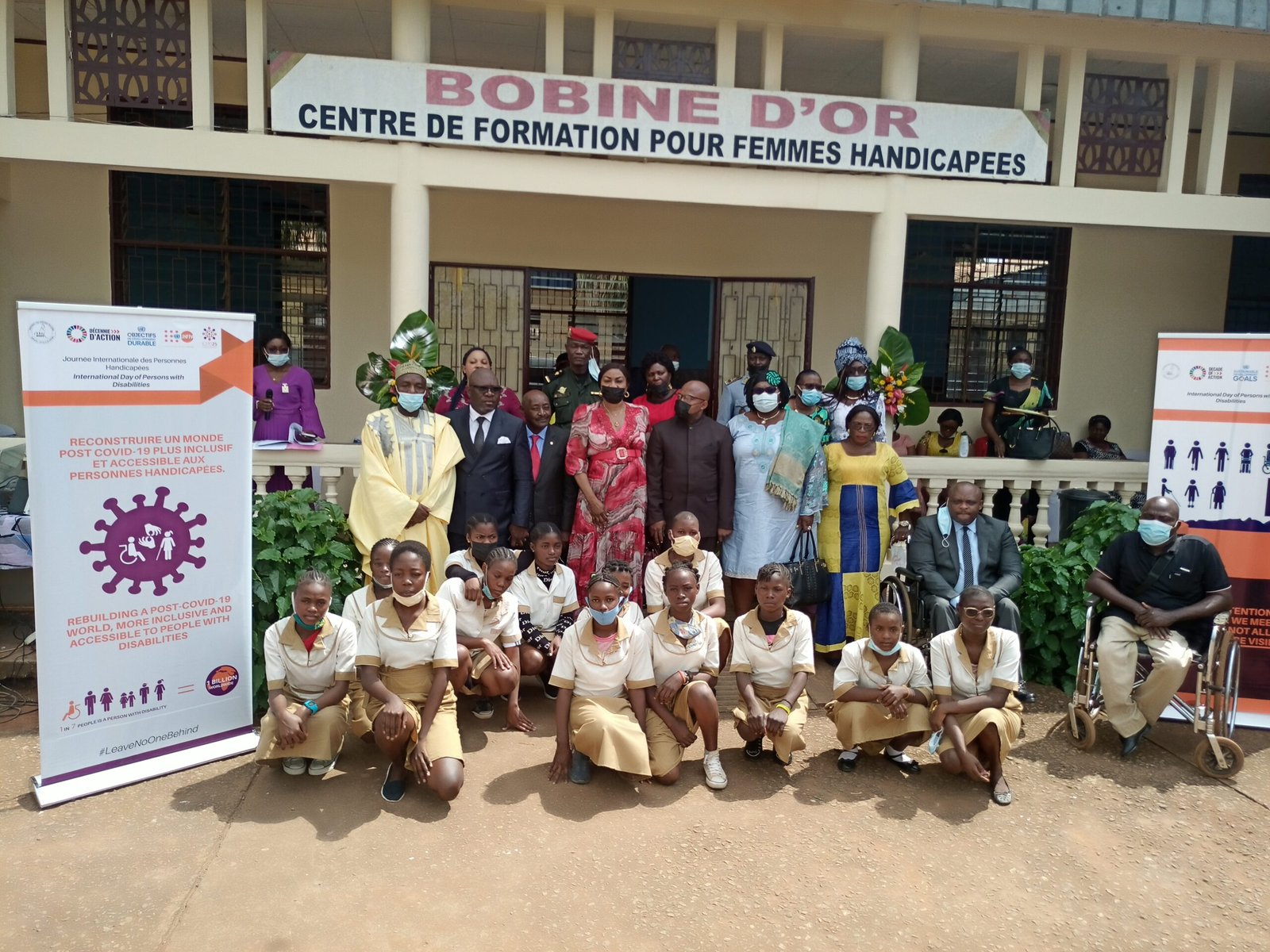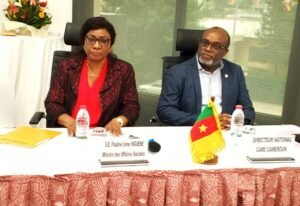Pauline Irène Nguene, Minister of social affairs was speaking on November 24, 2021 in Yaounde while officially launching activities to mark the 30th edition of the international day of people living with disabilities.
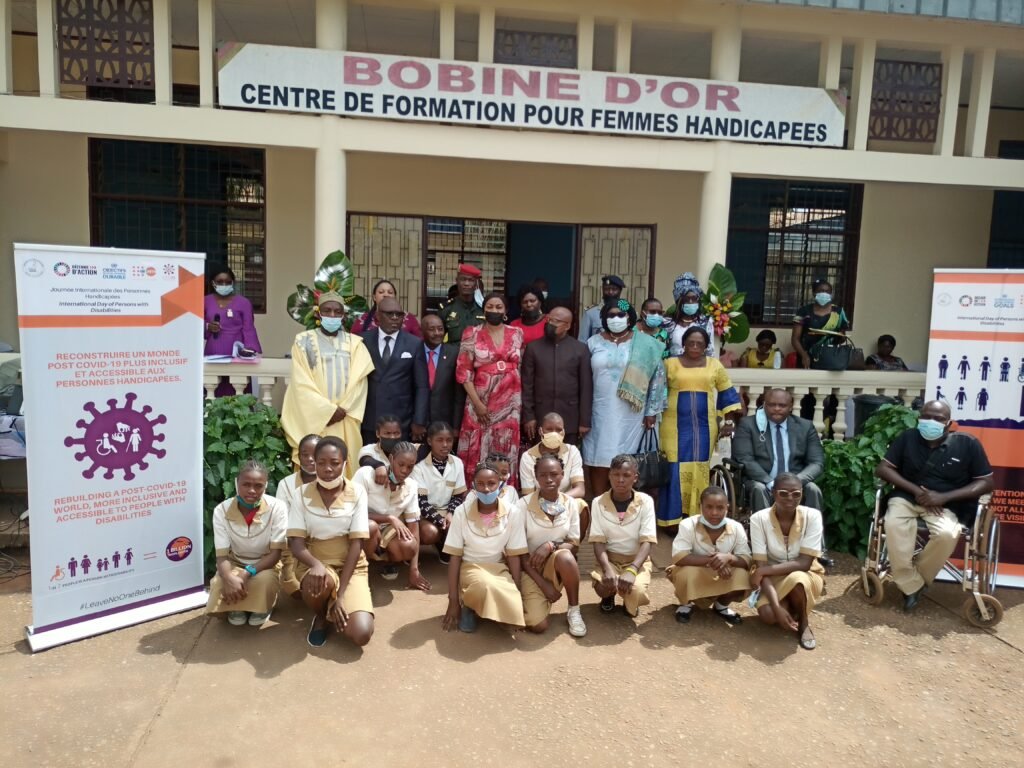
The ceremony which gathered various officials from the ministry of social affairs, the Secretary General of the Governor’s office, the divisional officer of Yaounde 4, the mayor and other key actors was aimed at advocating for the well-being of PLWD in Cameroon.
For this year’s official launch of weeklong activities to mark the 30th edition of the international day of people living with disabilities, PLWD come December 3, it was the Ekounou centre for disabled women known as Bobine d’or that was chosen as the host of the event.
In her welcoming address, the Director of the Bobine d’or said the training and production centre for disabled women which played host to the ceremony was constructed and equipped in 1994 by the Republic of China and later on retroceded to Cameroon. And was officially inaugurated on the 10th of November 1996 by first lady, Mrs Chantal Biya who baptized it as Bobine d’or.
Florence Nickaise Tenlep, Director of Bobine d’or said the centre has so far trained more than 210 disabled and vulnerable women. She added that some of these women trained have been recruited as state agents, in private companies and others decided to opt for self-employment due to lack of job opportunities.
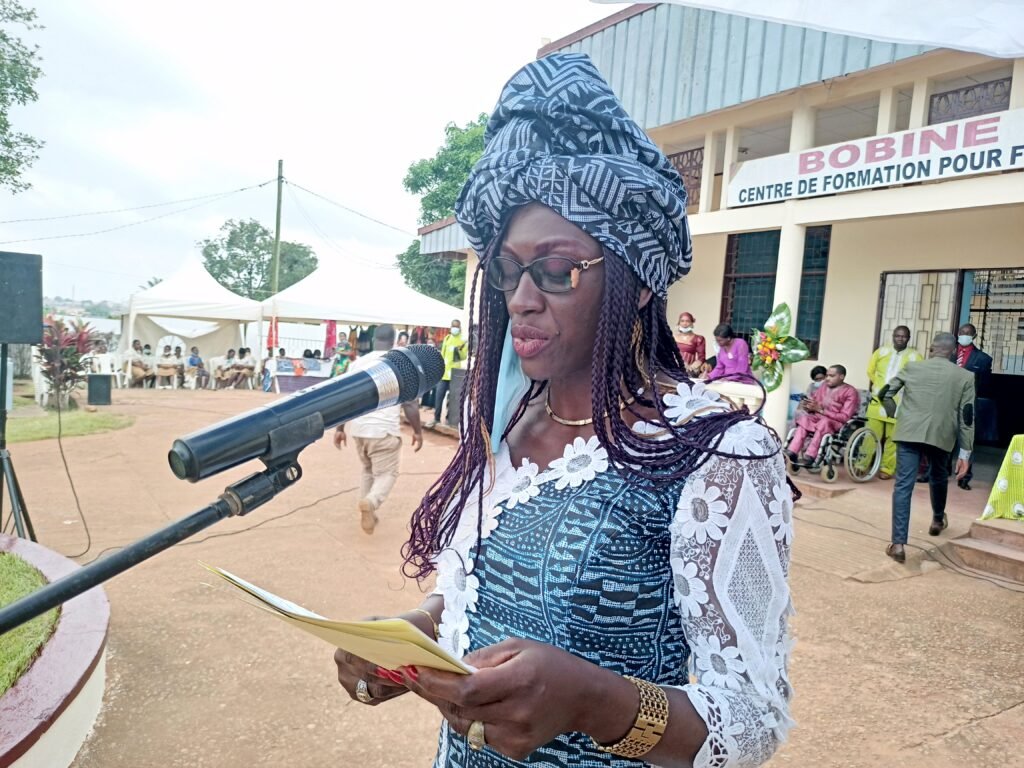
Mrs Tenlep while addressing the minister of social affairs and other officials seized the occasion to unveil the multiple difficulties which the centre faces. Amongst the issues cited by the Director of Bobine d’or features: the need to rehabilitate installations and equip the centre with up-to-date didactic materials; the need to seek for lasting solutions that will help to accompany some trainees who most of the time do not terminate their training due to several reasons which are linked to the precarious conditions in which they live; lack of transport fare for some as they come from underprivileged families and some get distracted by men etc.
Added to the numerous difficulties which affect the smooth functioning of the centre Bobine d’or, Florence Nickaise Tenlep outlined the fact that 40 percent of the trainees are people with sensory disabilities and therefore there is need for sign language trainers as well as a computer science monitor.
The mayor of Yaounde 4, Gabriel Bihina Efila on his part said, many initiatives are underway in his council to grant more space for people living with disabilities. Yet, he mentioned the fact that, the council employs some disabled and will proceed to further recruitment.

Social affairs’ Minister, Pauline Irène Nguene while officially launching activities, first stated that, the International day of persons with disabilities, is an opportunity to mobilize, each year, the community around the issue of disability or inclusion of the said targets in the society and to promote awareness-raising actions, in view of the construction of an inclusive environment accessible to all.
The Minas Boss pointed-out some statistics from the World Health organization and a link with current figures in Cameroon which are very contradictory at a moment government strives for the continuous implementation of the 2030 Agenda for sustainable Development Goals and other international development frameworks such as the Charter on the inclusion of persons with disabilities in the humanitarian action.
She said: “The latest World Report on Disability, published jointly by the World Health Organization (WHO) and the World Bank, states that more than one billion of the world’s population live with a disability, that is about 15% of the world’s population; or one in five (05) women. 80% are in developing countries. In 2017, Cameroon’s population is estimated at twenty-three million two hundred and forty-eight thousand (23,248,004) inhabitants. By applying the 15% ratio of the World Report on Disability 4 to the above-mentioned demographic data, it is estimated that, there are nearly three million four hundred and eighty-seven thousand two hundred (3,487,200) persons with disabilities in Cameroon. Often victims of discrimination and marginalization, persons with disabilities do not always benefit from appropriate education or vocational training to promote their empowerment and social integration. According to the official results of the last General Census of Population and Housing (3rd RGPH), the rate of education and literacy among person with disabilities is below average. Person with speech impediments, the mentally retarded and the blind are the most disadvantaged in terms of schooling.”
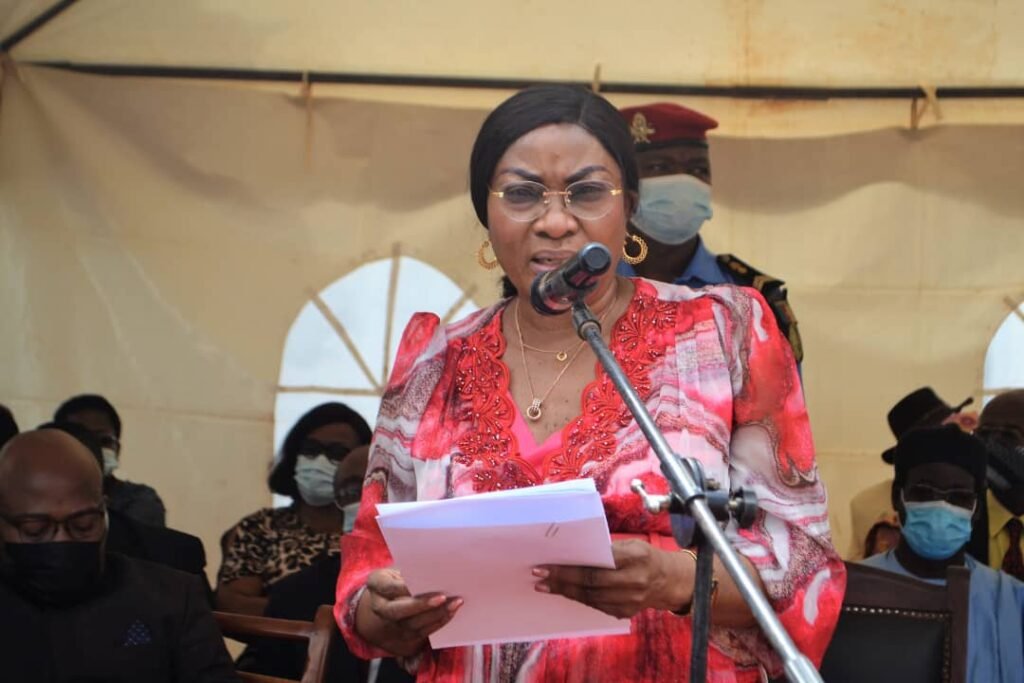
Pauline Irène Nguene further talked of discrimination and marginalization to which these socially vulnerable groups are exposed daily. She said there is great need to promote social inclusion for PLWD. On the part of government as she underscored, there are some strides recorded with first of all, a national law to protect persons with disabilities and two bills tabled at the ongoing November 2021 ordinary session of parliament.
As concerns the theme of this year’s upcoming celebration which is: « leadership and participation of persons with disabilities within the context of covid19 for an inclusive, accessible and sustainable world » the minister said it has been observed that there are existing inequalities which keep plaguing the situation of PLWD.
Social affairs’ Minister said: “Socioeconomic inequalities that were already linked to disability before the crisis tend to be more pronounced because of the effects of this pandemic. It has also been established that the risk of contracting covid-19 is higher among persons with disabilities. Indeed, the deficiency combined with an environment that is not always suitable forces them to seek help from others and, in turn, to be more exposed to the virus. In an inaccessible space, what can a blind person do without his guide?”

The minister concluded her key messages with calls on the respect of Human Rights and mainly the Rights of people living with disabilities and the need to intensify sensitization campaigns for the promotion and social inclusion of these vulnerable groups.
Elise Kenimbeni


